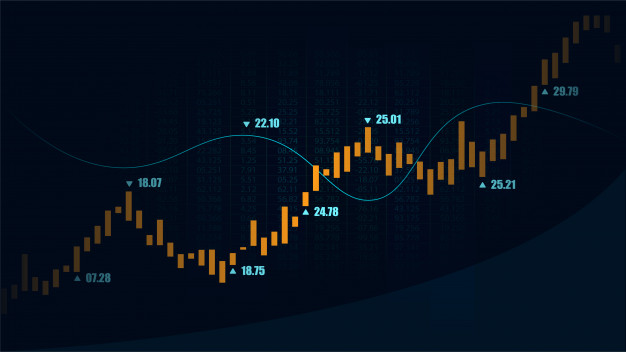(VIANEWS) – Orchid Island Capital (ORC), Capital Southwest Corporation (CSWC), John Hancock (HPS) have the highest dividend yield stocks on this list.
| Financial Asset | Forward Dividend Yield | Updated (EST) |
|---|---|---|
| Orchid Island Capital (ORC) | 18.73% | 2023-12-04 09:07:06 |
| Capital Southwest Corporation (CSWC) | 11.08% | 2023-12-07 15:07:06 |
| John Hancock (HPS) | 9.84% | 2023-12-03 01:08:07 |
| Realty Income Corporation (O) | 5.63% | 2023-12-17 03:20:22 |
| Bank of South Carolina Corp. (BKSC) | 5.11% | 2023-12-06 19:23:06 |
| PNM Resources (PNM) | 3.48% | 2023-12-04 15:07:07 |
| Weyco Group (WEYS) | 3.41% | 2023-12-12 01:23:06 |
| Jack In The Box (JACK) | 2.21% | 2023-12-09 05:14:05 |
Almost 2K companies listed in the Nasdaq and NYSE pay out dividends to its shareholders. The dividend yield is a dividend to price ratio showing how much a company pays out in dividends each year.
1. Orchid Island Capital (ORC) – Dividend Yield: 18.73%
Orchid Island Capital’s last close was $7.69, 39.26% under its 52-week high of $12.66. Intraday change was 4.34%.
Orchid Island Capital, Inc., a specialty finance company, invests in residential mortgage-backed securities (RMBS) in the United States. The company's RMBS is backed by single-family residential mortgage loans, referred as Agency RMBS. Its portfolio includes traditional pass-through Agency RMBS, such as mortgage pass through certificates and collateralized mortgage obligations; and structured Agency RMBS comprising interest only securities, inverse interest only securities, and principal only securities. The company has elected to be taxed as a real estate investment trust (REIT) for the United States federal income tax purposes. As a result, it would not be subject to corporate income tax on that portion of its net income that is distributed to stockholders, if it annually distributes dividends equal to at least 90% of its REIT taxable income to its stockholders. Orchid Island Capital, Inc. was incorporated in 2010 and is headquartered in Vero Beach, Florida.
Earnings Per Share
As for profitability, Orchid Island Capital has a trailing twelve months EPS of $-0.17.
The company’s return on equity, which measures the profitability of a business relative to shareholder’s equity, for the twelve trailing months is negative -7.25%.
Volume
Today’s last reported volume for Orchid Island Capital is 1672230 which is 22.03% above its average volume of 1370240.
Growth Estimates Quarters
The company’s growth estimates for the present quarter is a negative 166.7% and positive 25% for the next.
More news about Orchid Island Capital.
2. Capital Southwest Corporation (CSWC) – Dividend Yield: 11.08%
Capital Southwest Corporation’s last close was $22.75, 2.57% below its 52-week high of $23.35. Intraday change was 0.53%.
Capital Southwest Corporation is a business development company specializing in credit and private equity and venture capital investments in middle market companies, mezzanine, later stage, mature, late venture, emerging growth, buyouts, recapitalizations and growth capital investments. It does not invest in startups, publicly traded companies, real estate developments, project finance opportunities, oil and gas exploration businesses, troubled companies, turnarounds, and companies in which significant senior management is departing. In lower middle market, the firm typically invests in growth financing, bolt-on acquisitions, new platform acquisitions, refinancing, dividend recapitalizations, sponsor-led buyouts, and management buyouts situations. The investment structures are Unitranche debt, subordinated debt, senior debt, first and second lien debt, and preferred and common equity. The firm makes equity co-investments alongside debt investments, up to 20% of total check and only makes non-control investments. It prefers to invest in Industrial manufacturing and services, value-added distribution, healthcare products and services, business services, specialty chemicals, food and beverage, tech-enabled services and SaaS models. The firm seeks to invest in energy services and products, industrial technologies, and specialty chemicals and products. Within energy services and products, the firm seeks to invest in each segment of the industry, including upstream, midstream and downstream, excluding exploration and production with a focus on differentiated products and services, equipment and tool rental, consumable products, and drilling and completion chemicals. Within industrial technologies, it seeks to invest in automation and process controls, handling and packaging equipment, industrial filtration and fluid handling, measurement, monitoring and testing, professional tools, and sensors and instrumentation. Within and specialty chemicals and products, the firm seeks to invest in businesses that develop and manufacture highly differentiated chemicals and products including adhesives, coatings and sealants, catalysts and absorbents, cosmeceuticals, fine chemicals, flavors and fragrances, performance lubricants, polymers, plastics and composites, chemical dispensing and filtration equipment, professional and industrial trade consumables and tools, engineered solutions for HVAC, plumbing, and electrical installations, specified high performance materials for fire protection and oilfield applications. It may also invest in exceptional opportunities in building products. The firm seeks to invest in the United States. The firm seeks to make investments ranging from $5 to $25 million in securities. It seeks to make equity investments up to $5 million and debt investments between $5 million and $20 million and co-invest in transaction size upto $40 million. It prefers to invest in companies with revenues approaching above $10 million, profitable operations, historical growth rate of at least 15 percent per year. . Within the lower middle market, it seeks to invest in with less than $15 million in EBITDA and also opportunistically invests in the upper middle market, generally defined as companies with EBITDA in excess of $50 million. In addition to making direct investments, the firm allocates capital to syndicated first and second lien term loans in the upper middle market. Criteria for Upper Middle Market Syndicated 1st Lien is EBITDA Size more than $30 million, Closing Leverage greater than 4 times, investment hold size between $5 million and $7 million, investment yield greater than 6.5%. Criteria for Upper Middle Market Syndicated 2nd Lien is EBITDA Size more than $50 million, Closing Leverage greater than 6 times, investment hold size between $5 million and $7 million, investment yield greater than 9%. It prefers to take a majority and minority stake. The firm has the flexibility to hold investments for very long period in its portfolio companies. It may also invest through warrants. The firm prefers to take Board participation in its portfolio companies. Capital Southwest Corporation was founded on April 19, 1961 and is based in Dallas, Texas.
Earnings Per Share
As for profitability, Capital Southwest Corporation has a trailing twelve months EPS of $1.85.
PE Ratio
Capital Southwest Corporation has a trailing twelve months price to earnings ratio of 12.36. Meaning, the purchaser of the share is investing $12.36 for every dollar of annual earnings.
The company’s return on equity, which measures the profitability of a business relative to shareholder’s equity, for the twelve trailing months is 11.92%.
More news about Capital Southwest Corporation.
3. John Hancock (HPS) – Dividend Yield: 9.84%
John Hancock’s last close was $13.42, 16.13% under its 52-week high of $16.00. Intraday change was 1.05%.
John Hancock Preferred Income Fund III is a closed ended fixed income mutual fund launched and managed by John Hancock Investment Management LLC. It is co-managed by John Hancock Asset Management. The fund invests in the fixed income markets of the United States. It seeks to invest in securities of companies operating across diversified sectors. The fund primarily invests in preferred securities or other fixed-income securities rated investment grade or higher by Moody's or Standard & Poor's. It benchmarks the performance of its portfolio against the Bank of America Merrill Lynch Hybrid Preferred Securities Index and Barclays U.S. Aggregate Bond Index. John Hancock Preferred Income Fund III was formed on June 19, 2003 and is domiciled in the United States.
Earnings Per Share
As for profitability, John Hancock has a trailing twelve months EPS of $-0.97.
The company’s return on equity, which measures the profitability of a business relative to shareholder’s equity, for the twelve trailing months is negative -6.52%.
Moving Average
John Hancock’s worth is above its 50-day moving average of $12.77 and below its 200-day moving average of $13.70.
Volume
Today’s last reported volume for John Hancock is 121231 which is 51.26% above its average volume of 80146.
More news about John Hancock.
4. Realty Income Corporation (O) – Dividend Yield: 5.63%
Realty Income Corporation’s last close was $57.29, 16.79% below its 52-week high of $68.85. Intraday change was -1.44%.
Realty Income, The Monthly Dividend Company, is an S&P 500 company and member of the S&P 500 Dividend Aristocrats index. We invest in people and places to deliver dependable monthly dividends that increase over time. The company is structured as a real estate investment trust ("REIT"), and its monthly dividends are supported by the cash flow from over 13,250 real estate properties primarily owned under long-term net lease agreements with commercial clients. To date, the company has declared 640 consecutive monthly dividends on its shares of common stock throughout its 54-year operating history and increased the dividend 122 times since Realty Income's public listing in 1994 (NYSE: O).
Earnings Per Share
As for profitability, Realty Income Corporation has a trailing twelve months EPS of $1.32.
PE Ratio
Realty Income Corporation has a trailing twelve months price to earnings ratio of 43.17. Meaning, the purchaser of the share is investing $43.17 for every dollar of annual earnings.
The company’s return on equity, which measures the profitability of a business relative to shareholder’s equity, for the twelve trailing months is 3.02%.
Dividend Yield
As maintained by Morningstar, Inc., the next dividend payment is on Nov 29, 2023, the estimated forward annual dividend rate is 3.07 and the estimated forward annual dividend yield is 5.63%.
More news about Realty Income Corporation.
5. Bank of South Carolina Corp. (BKSC) – Dividend Yield: 5.11%
Bank of South Carolina Corp.’s last close was $13.56, 20.93% under its 52-week high of $17.15. Intraday change was 1.95%.
Bank of South Carolina Corporation operates as a bank holding company for The Bank of South Carolina that provides a range of financial products and services primarily in Charleston, Berkeley, and Dorchester counties of South Carolina. Its deposits include non-interest-bearing demand accounts, NOW accounts, money market accounts, time deposits, and savings accounts, as well as certificates of deposit. The company offers secured and unsecured commercial loans, commercial real estate construction loans, consumer construction loans, home equity lines of credit, and mortgage originations, as well as paycheck protection program loans. It operates five banking house locations. The company was founded in 1986 and is headquartered in Charleston, South Carolina.
Earnings Per Share
As for profitability, Bank of South Carolina Corp. has a trailing twelve months EPS of $1.16.
PE Ratio
Bank of South Carolina Corp. has a trailing twelve months price to earnings ratio of 11.69. Meaning, the purchaser of the share is investing $11.69 for every dollar of annual earnings.
Dividend Yield
As maintained by Morningstar, Inc., the next dividend payment is on Oct 8, 2023, the estimated forward annual dividend rate is 0.68 and the estimated forward annual dividend yield is 5.11%.
Revenue Growth
Year-on-year quarterly revenue growth declined by 8%, now sitting on 20.68M for the twelve trailing months.
Yearly Top and Bottom Value
Bank of South Carolina Corp.’s stock is valued at $13.56 at 18:15 EST, way below its 52-week high of $17.15 and way above its 52-week low of $9.52.
Moving Average
Bank of South Carolina Corp.’s value is way above its 50-day moving average of $11.54 and higher than its 200-day moving average of $13.50.
More news about Bank of South Carolina Corp..
6. PNM Resources (PNM) – Dividend Yield: 3.48%
PNM Resources’s last close was $42.25, 14.82% under its 52-week high of $49.60. Intraday change was -0.07%.
PNM Resources, Inc., through its subsidiaries, provides electricity and electric services in the United States. It operates through Public Service Company of New Mexico (PNM) and Texas-New Mexico Power Company (TNMP) segments. The PNM segment engages in the generation, transmission, and distribution of electricity. The segment owns and leases communication, office and other equipment, office space, vehicles, and real estate. It generates electricity using coal, natural gas and oil, nuclear fuel, solar, wind, and geothermal energy sources. The TNMP segment provides regulated transmission and distribution services. The segment also owns and leases vehicles, service facilities, and office locations throughout its service territory. The company serves residential, commercial, and industrial customers and end-users of electricity in New Mexico and Texas. PNM Resources, Inc. was founded in 1882 and is headquartered in Albuquerque, New Mexico.
Earnings Per Share
As for profitability, PNM Resources has a trailing twelve months EPS of $1.78.
PE Ratio
PNM Resources has a trailing twelve months price to earnings ratio of 23.72. Meaning, the purchaser of the share is investing $23.72 for every dollar of annual earnings.
The company’s return on equity, which measures the profitability of a business relative to shareholder’s equity, for the twelve trailing months is 7.54%.
Yearly Top and Bottom Value
PNM Resources’s stock is valued at $42.22 at 18:15 EST, way below its 52-week high of $49.60 and above its 52-week low of $41.44.
More news about PNM Resources.
7. Weyco Group (WEYS) – Dividend Yield: 3.41%
Weyco Group’s last close was $29.44, 3.48% under its 52-week high of $30.50. Intraday change was 0.27%.
Weyco Group, Inc., together with its subsidiaries, designs and distributes footwear for men, women, and children. It operates through two segments, North American Wholesale Operations and North American Retail Operations. The company offers mid-priced leather dress shoes and casual footwear of man-made materials or leather; and outdoor boots, shoes, and sandals under the Florsheim, Nunn Bush, Stacy Adams, BOGS, and Rafters brand names. It is also involved in the wholesale of its products to approximately 10,000 footwear, department, and specialty stores, as well as e-commerce retailers. As of December 31, 2020, the company had five brick and mortar retail stores in the United States. In addition, it has licensing agreements with third parties, who sell its branded apparel, accessories, and specialty footwear. Weyco Group, Inc. serves in the United States, Canada, Europe, Australia, Asia, and South Africa. The company was formerly known as Weyenberg Shoe Manufacturing Company and changed its name to Weyco Group, Inc. in April 1990. Weyco Group, Inc. was incorporated in 1906 and is based in Milwaukee, Wisconsin.
Earnings Per Share
As for profitability, Weyco Group has a trailing twelve months EPS of $3.33.
PE Ratio
Weyco Group has a trailing twelve months price to earnings ratio of 8.84. Meaning, the purchaser of the share is investing $8.84 for every dollar of annual earnings.
The company’s return on equity, which measures the profitability of a business relative to shareholder’s equity, for the twelve trailing months is 14.31%.
Revenue Growth
Year-on-year quarterly revenue growth declined by 13.2%, now sitting on 336.5M for the twelve trailing months.
Volatility
Weyco Group’s last week, last month’s, and last quarter’s current intraday variation average was 0.27%, 0.47%, and 1.65%.
Weyco Group’s highest amplitude of average volatility was 0.27% (last week), 1.36% (last month), and 1.65% (last quarter).
More news about Weyco Group.
8. Jack In The Box (JACK) – Dividend Yield: 2.21%
Jack In The Box’s last close was $79.51, 20.14% under its 52-week high of $99.56. Intraday change was 1.05%.
Jack in the Box Inc. operates and franchises Jack in the Box quick-service restaurants. As of September 27, 2020, it operated and franchised 2,241 Jack in the Box quick-service restaurants primarily in the western and southern United States, including one in Guam. The company was founded in 1951 and is headquartered in San Diego, California.
Earnings Per Share
As for profitability, Jack In The Box has a trailing twelve months EPS of $6.3.
PE Ratio
Jack In The Box has a trailing twelve months price to earnings ratio of 12.62. Meaning, the purchaser of the share is investing $12.62 for every dollar of annual earnings.
Volume
Today’s last reported volume for Jack In The Box is 183097 which is 50.07% below its average volume of 366714.
Growth Estimates Quarters
The company’s growth estimates for the present quarter is a negative 2.5% and positive 0.7% for the next.
More news about Jack In The Box.










